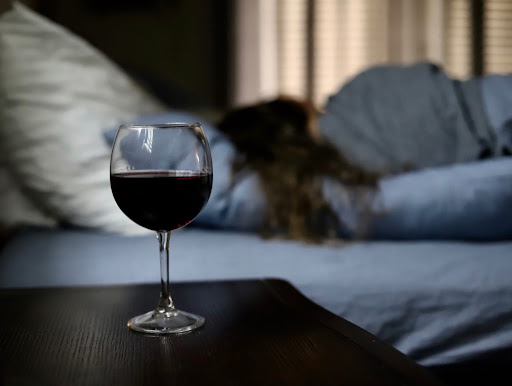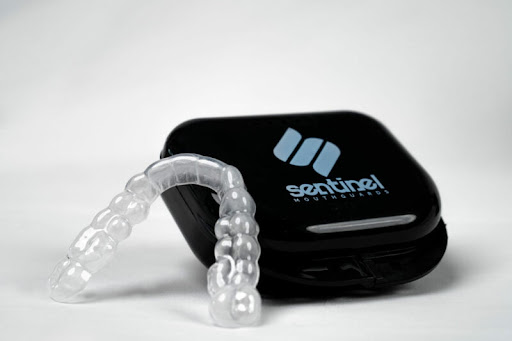Recent research points to yes. In fact, drinking alcohol doubles a person’s chance of developing bruxism (teeth grinding).
Alcohol intake before bed disrupts sleep patterns and alters neurotransmitters in the brain.
Dehydration has also been linked to the increased likelihood of grinding teeth at night.
A series of over 800 studies were conducted on the link between sleep bruxism and alcohol consumption. Of these 800 studies, the authors selected 7 to be included (samples ranging from 51 to over 10,000 participants).
The findings were published in The Journal of the American Dental Association (JADA). Results showed that sleep bruxism was highly associated with alcohol and tobacco use – even more than patients who drank 8 or more cups of coffee a day!
It turns out that as far as nighttime teeth grinding goes, alcohol can wreak more havoc on your teeth and jaw than an entire pot of coffee. Eek!

Opting For a Healthier Lifestyle
We tend to hold tension in our upper back, neck and jaw. Bruxism can be a difficult habit to break, and one thing we know doesn’t help in the quest to stop nightly teeth grinding is the consumption of alcohol.
Ways to lessen the severity of teeth grinding, or stop it all together
1. Lower stress levels.
Exercise. Daily exercise reduces stress levels. A simple evening walk is a great place to start. Walking is one of the most underrated forms of exercise. Instead of reaching for that glass of wine, go for a walk instead. Good decisions build self confidence and lower stress levels.
Eat better. There is such a thing as stress relieving foods that can lower anxiety. Eating less junk food and increasing your intake of nutrients such as vitamin E and omega 3’s can lead to lower stress levels.
Be kind. Remember to be kind to yourself and other people. Remember Newton’s 3rd law of motion? For every action there is an equal and opposite reaction. Be the best version of yourself. Stay away from negative people. Take control of your life or it will take control of you!
2. Avoid alcohol, caffeine and any type of stimulants – such as adderall, diet pills, etc.
Teeth grinding intensifies after consuming these things, especially at night. Alcohol & teeth grinding are two habits that do not go together well. The end result can be damaged teeth, a sore jaw and costly dental repairs.
If you have a glass of wine, get it over with early in the evening and give yourself a few hours to wind down, or better yet, avoid it entirely!
Don’t drink coffee late in the day
3. Wear a dental night guard.
Wearing a dental night guard for your teeth can greatly reduce and even eliminate the jaw pain and teeth pain that stems from grinding and clenching teeth.
A dental night guard for teeth grinding will protect your teeth from further damage. It provides a much needed barrier so that there is no tooth on tooth contact. Make sure your night guard fits well and is comfortable in the mouth.

Choose a custom made night guard (pictured above). Avoid mass produced “one size fits all” dental night guards as the improper fit and bulkiness can cause discomfort.
Signs that you’re grinding or clenching your teeth
- Teeth pain/sensitivity
- Headaches
- Jaw pain
- Chipped or broken teeth
- Your partner hears you grinding your teeth
- Your dentist says you’re grinding your teeth
You Are In Control.
If you believe you’re suffering from teeth or jaw pain because of excessive teeth grinding, be sure to contact your dentist as he/she can evaluate the health of your teeth.
Take control early. Wearing a dental night guard is preventative and can save you thousands of dollars in costly dental repairs down the road.
You may be interested in: What to Know Before Getting Dental Implants

